第57章
(2.) CLAIRVOYANCE, as exhibited in the affair of the sword of Fierbois.
(3.) PRESCIENCE, as in the prophecy of her arrow-wound at Orleans.
According to her confessor, Pasquerel, she repeated the prophecy and indicated the spot in which she would be wounded (under the right shoulder) on the night of May 6. But this is later evidence given in the trial of Rehabilitation. Neither Pasquerel nor any other of the Maid's party was heard at the trial of 1431.
To these we might add the view, from Vaucouleurs, a hundred leagues away, of the defeat at Rouvray; the prophecy that she 'would last but a year or little more;' the prophecy, at Melun, of her capture; the prophecy of the relief of Compiegne; and the strange affair of the bon conduit at the battle of Pathay.* For several of these predictions we have only the Maid's word, but to be plain, we can scarcely have more unimpeachable testimony.
*Proces, iv. 371, 372. Here the authority is Monstrelet, a Burgundian.
Here the compiler leaves his task: the inferences may be drawn by experts. The old theory of imposture, the Voltairean theory of a 'poor idiot,' the vague charge of 'hysteria,' are untenable. The honesty and the genius of Jeanne are no longer denied. If hysteria be named, it is plain that we must argue that, because hysteria is accompanied by visionary symptoms, all visions are proofs of hysteria. Michelet holds by hallucinations which were unconsciously externalised by the mind of Jeanne. That mind must have been a very peculiar intellect, and the modus is precisely the difficulty.
Henri Martin believes in some kind of manifestation revealed to the individual mind by the Absolute: perhaps this word is here equivalent to 'the subliminal self' of Mr. Myers. Many Catholics, as yet unauthorised, I conceive, by the Church, accept the theory of Jeanne herself; her saints were true saints from Paradise. On the other hand it is manifest that visions of a bright light and 'auditions' of voices are common enough phenomena in madness, and in the experiences of very uninspired sane men and women. From the sensations of these people Jeanne's phenomena are only differentiated by their number, by their persistence through seven years of an almost abnormally healthy life, by their importance, orderliness, and veracity, as well as by their heroic character.
Mr. Myers has justly compared the case of Jeanne with that of Socrates. A much humbler parallel, curiously close in one respect, may be cited from M. Janet's article, 'Les Actes Inconscients dans le Somnambulisme' ('Revue Philosophique,' March 1888).
The case is that of Madame B., a peasant woman near Cherbourg. She has her common work-a-day personality, called, for convenience, 'Leonie.' There is also her hypnotic personality, 'Leontine.' Now Leontine (that is, Madame B. in a somnambulistic state) was one day hysterical and troublesome. Suddenly she exclaimed in terror that she heard A VOICE ON THE LEFT, crying, 'Enough, be quiet, you are a nuisance.' She hunted in vain for the speaker, who, of course, was inaudible to M. Janet, though he was present. This sagacious speaker (a faculty of Madame B.'s own nature) is 'brought out' by repeated passes, and when this moral and sensible phase of her character is thus evoked, Madame B. is 'Leonore.' Madame B. now sometimes assumes an expression of beatitude, smiling and looking upwards. As Dunois said of Jeanne when she was recalling her visions, 'miro modo exsultabat, levando suos oculos ad coelum.'
This ecstasy Madame B. (as Leonie) dimly remembers, averring that 'she has been dazzled BY A LIGHT ON THE LEFT SIDE.' Here apparently we have the best aspect of poor Madame B. revealing itself in a mixture of hysterics and hypnotism, and associating itself with an audible sagacious voice and a dazzling light on the left, both hallucinatory.